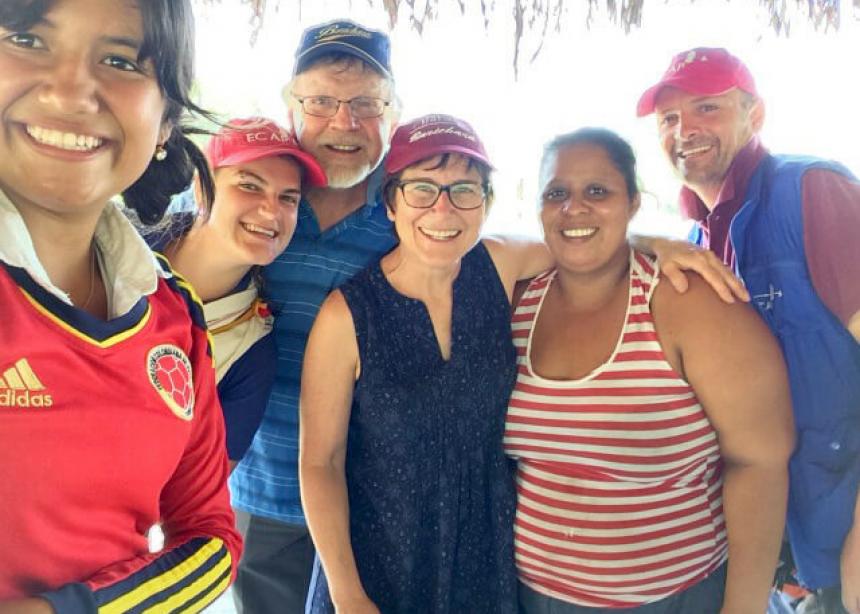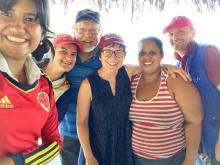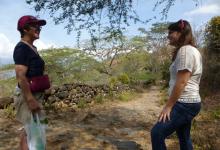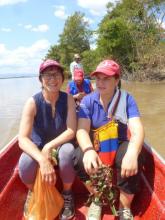The saying goes, “There are two gifts we should give our children: one is roots, the other is wings.” My husband and I encouraged our children to fly and prayed we gave them roots.
One day in a sermon my husband said, “I believe in what Christian Peacemaker Teams [CPT] does, but I also fear one of our sons will join them,” referring to its placing of teams in communities confronted with situations of life-threatening conflict.
Well, it turns out it is our daughter Hannah who is now a long-term CPT volunteer in Colombia. She’s been there for four years now, walking with farmers who are at risk of being forcibly displaced from their land, and learning about the challenges women face in that setting.
My roots are in Pennsylvania, growing up on a farm with two older brothers. I was expected to help with outside work as well as in the house. My dad also taught me to shoot a hunting rifle and ride a motorcycle. But I realized my brothers were not expected to help with housework and were given cars for their 16th birthday. I felt they had an unfair advantage.
Now as I’ve mothered the next generation, I pondered what message I passed on to our only daughter. After reading an article Hannah sent me about an experience she had at a women’s regional peacebuilding meeting, I found my answer. Here’s what she wrote:
“The most impacting moment for me [at the first meeting of women from northeastern Antioquia] was a fireside conversation around apple sugar-cane tea. The women gathered around holding hands and introduced themselves, then moved into small groups to share their experiences: ‘When did you realize you were a woman?’ ‘What have your struggles been?’ ‘What is the role of women in your society today?’
“Stories came pouring forth: becoming a woman at 16 because she was [pregnant] and about to be married; realizing her womanhood as they raped her; struggling to put food on the table and care for the children while also working on the farm; missing out on her childhood because she had to work; and the expectations of submission, permission and women as property. Tears rolled and laughter ensued as the stories wove together, intertwined and floated up on the steam from our tea cups.
“I, too, am a woman. But my story comes from a very different place than those campesina [rural peasant] women. I realized I was a woman when I was about four or five years old. Growing up amongst three brothers, I understood rather quickly that I was different. Not just physically, but also by the way I was treated. I remember being so very frustrated with what I experienced as favouritism from my mother. I hated that she singled me out, made sure I was getting what I needed before the boys, and generally just took to spoiling me. Or so I thought.
“But while I shared my life’s experiences with those beautiful women, I suddenly realized that what I had received from my mother wasn’t excessive doting or coddling; she was actually creating a level playing field for me. She was giving me the step up that society never would, so that I’d have the same experiences and opportunities as my brothers. She was my ally, proving to me that I could do anything.
“The most important asset to this difficult work of undoing oppression is being an ally. We need women and men, young and old, of every nationality, ethnicity, religion and orientation, to stand together as allies, recognizing privileges and creating consciousness to tear down society’s oppressive structures. And these Colombian women are doing just that.”
So why not join the team?
Read more of Hannah Redekop’s writing here.





Add new comment
Canadian Mennonite invites comments and encourages constructive discussion about our content. Actual full names (first and last) are required. Comments are moderated and may be edited. They will not appear online until approved and will be posted during business hours. Some comments may be reproduced in print.